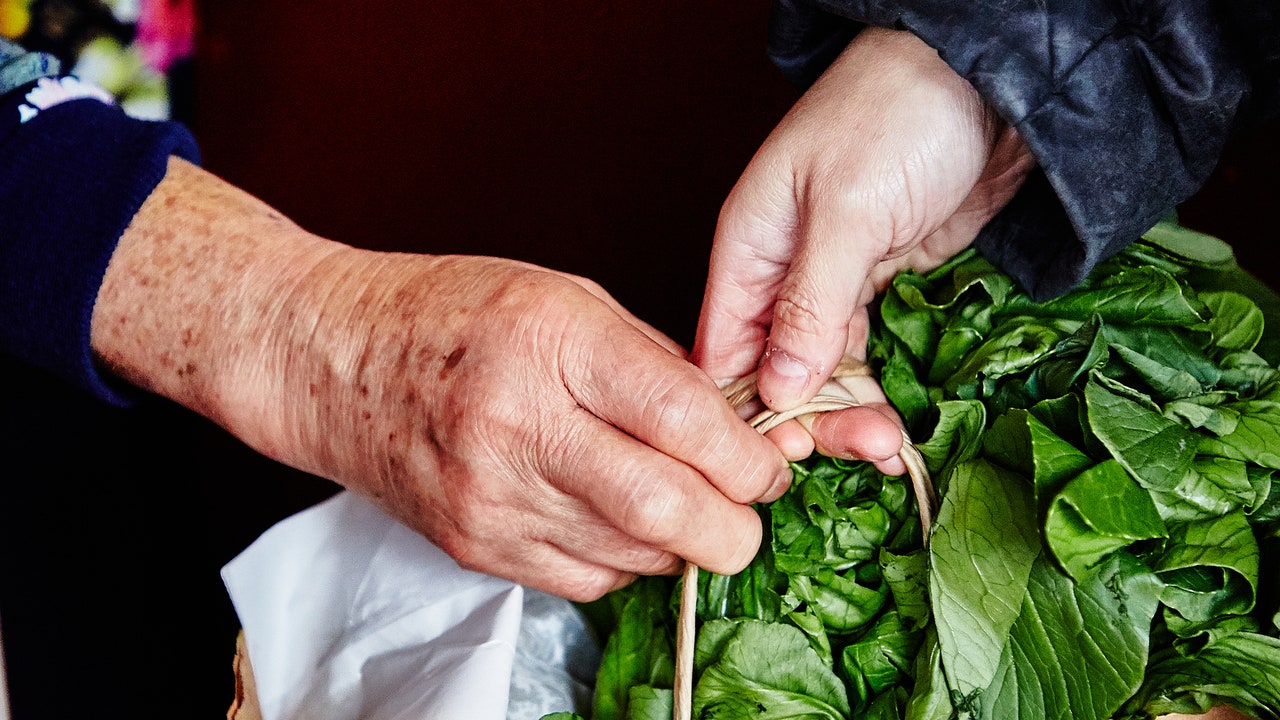“Chinatown was my home away from home,” Justin McKibben tells me. He’s the founder of Send Chinatown Love, an organization that provides support to small businesses in Manhattan’s Chinatown. “It was the only place I could get a meal that felt like a home-cooked meal in a city that can be very isolating.”
McKibben started Send Chinatown Love in February 2020, just before cities began shutting down. By then, Chinatowns across the nation were already feeling the effects of anti-Asian xenophobia. Mom-and-pop businesses in these immigrant communities, many of which already operate on slim margins, saw a downturn in patrons. McKibben, who lived in Chinatown at the time, noticed that some of his favorite restaurants had shuttered, unable to pay rent or worker wages.
With his background in software engineering, McKibben says his first instinct was to help them by registering them for food delivery apps or building them websites and social media followings. But very quickly he realized that what the businesses needed was money, and fast. Unable to apply or ineligible for government relief due to their cash-only nature, many of them direly needed a way to pay their rent and workers. So McKibben and a small team of volunteers began to fundraise for businesses, directly cutting them checks.
“We went in with an idea of how we would help, but we were very, very intentional to make sure that we weren’t prescribing help,” McKibben says. While many business owners were initially wary of these young people who offered them no-strings-attached aid, McKibben says that taking the time to listen to their needs, as well as showing complete transparency in SCL’s operations and fundraising, helped garner trust with an immigrant community that had felt taken advantage of in the past and learned to expect little from government programs and outsiders claiming to offer aid.
Since then, the organization has expanded its aid offerings. It hosts food crawls to encourage foot traffic back into Chinatown establishments. It organizes a gift-a-meal project in which community members fundraise for meals from restaurants (some with owners who might otherwise be reluctant to receive perceived “handouts,” as McKibben put it) to then serve to food shelters. And yes, it now offers business development services that include website creation, marketing strategies, and online delivery help.
When I ask Tsai what she’s taken away from the experience of running Heart of Dinner, she echoes McKibben. “Something Yin and I have both learned is to really listen, especially to our elders,” Tsai says. An integral part of their work involves hearing the needs of the individuals they serve. Every week, volunteers call elders to remind them their care package will be delivered the next day—in case they’ve forgotten or if they have another appointment they might need to reschedule. When these elders face crises, they similarly feel comfortable to make requests of the team. One man, recovering from a mugging, declined the team’s offers to fundraise for his care, and asked only for an extra egg that week in his meal, Tsai says. While anyone might feel an urge to push for that fundraiser, Heart of Dinner’s team wanted to dignify the man’s wishes.
Tsai, in turn, has discovered she’s been heard by the community she’s served, too. One time, a widowed woman left her a voicemail after receiving her first meal. “It was like, ‘Thank you so much, thank you for thinking of us older people. Thank you for caring for us,” Tsai says. “‘And also, thank you [and Chang] for coming together and for your love of each other. Because through that we have [Heart of Dinner].’” This acceptance and celebration of her relationship was especially meaningful to Tsai, because although she’s fully out to her family in the States, she’s never come out to her grandparents.
For my college friends and I, who all belong to the Chinese and Taiwanese diaspora, Chinatown was both a literal and figurative meeting point for us, a place where we could reclaim a distinct part of ourselves after days of being the only Asian person at work. For some of us, it was the only day of the week when, while communicating with restaurant staff or shop vendors, we clumsily used our mother tongues; it was the closest taste we could get of a home we longed for. While most of us didn’t have direct ties to the longtime residents of Chinatown, we felt a kinship with the aunties and uncles we spoke with—they reminded us of our family elsewhere.
Perhaps it’s trite to say that the founders of these community aid projects have been given back as much or even more than they themselves have given. But this is what mutual aid is about—uplifting each other and all our needs, both physical and emotional, so that a community can not only sustain itself but thrive. The simple act of empathetic listening, on both ends, may be what sets these community aid organizations apart from the usual charitable giving projects.
What began as a way for young people to serve the communities close to their hearts has transformed Chinatown into a hub for true mutual aid. Two years into the pandemic, organizations like Heart of Dinner and Send Chinatown Love are still going strong. Tsai tells me that some of the people who write the hand-decorated cards in Heart of Dinner’s care packages are even elderly themselves, mailing them in from all over the world. Despite the ongoing pandemic, new incidents of anti-Asian violence, and rising food prices that further affect folks already struggling, these organizations continue to shine as a repudiation to cynicism, as reminders of what a community can and will do when it comes together.
